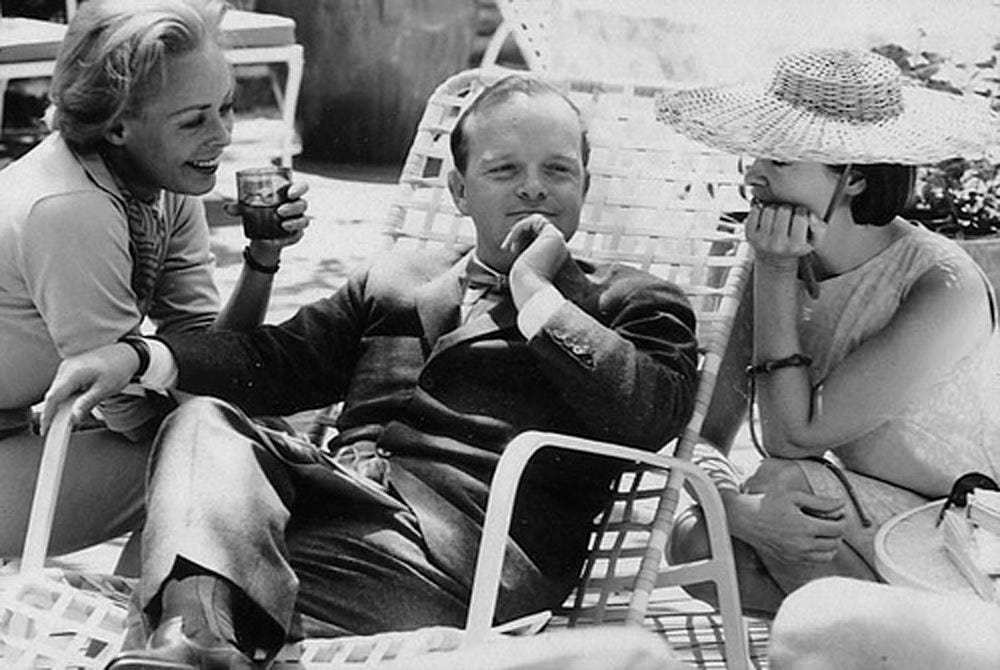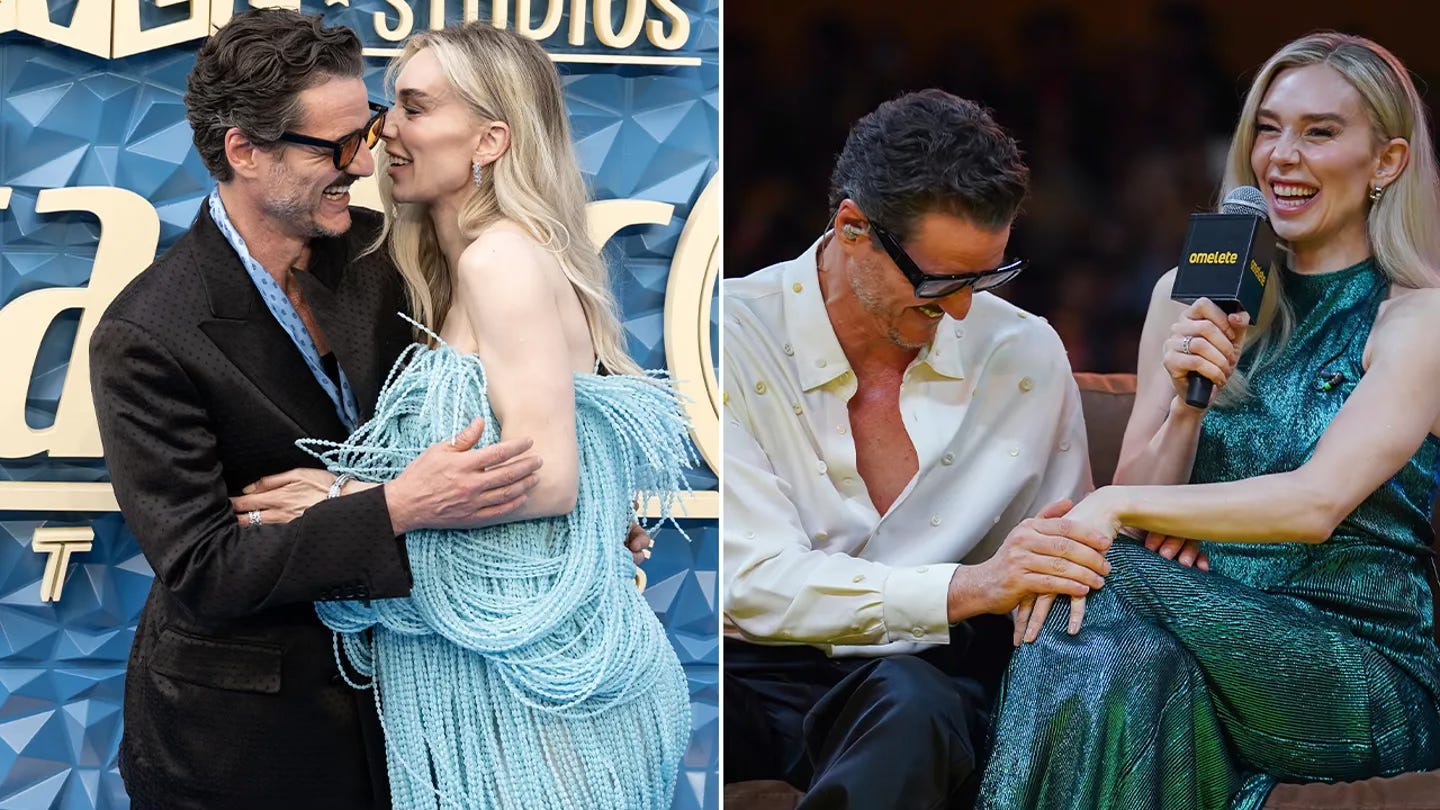A Reclamation of Platonic Love
The Case for Loving Your Friends Out Loud, Unapologetically.
“You must be secretly into each other…”
“Woah there—you’re married!”
“Are you sure you’re just friends?”
These are the kinds of comments I’ve heard offhand—joking, but loaded—when speaking about those that I deeply care for. Soul companions. People I am proud to know. I speak about them with tenderness, admiration, and awe, but somehow my love is deemed “suspicious”. As if love must only follow one narrow script: either you’re romantically involved, or you must be emotionally detached.
But here’s the truth:
Yes—I am in love with my friends. Yes—I am happily married. So, what?
I am no longer interested in shrinking all of the love in my life to make it digestible for others.
I try to surround myself with people of caliber. People who make me better, who reflect the kind of care and character I, myself, want to carry. I don’t offer my love carelessly, so when I do, it’s real. It’s intentional. It’s lasting. And it hurts how often that is misunderstood, dismissed, or worse, sexualized. Even within my predominantly queer community, these accusations persist regardless of gender or sexuality.
These binary views of love and relationship are antiquated. We’ve turned love into a rigid set of categories. We’ve made affection conditional, and suspicion the default. Society has such a hard time accepting intimacy that isn’t only romantic, and that’s especially true when it comes to platonic love. If you’re a man and a woman, it’s immediately assumed that you’re a couple. If you’re the same sex, especially when openly queer, the same assumptions are often made. Either way, people cannot seem to accept closeness without turning it into a punchline or a plot twist.
But the power of platonic love is not new. We’ve seen it throughout history; cherished, sometimes betrayed, but always present.
Recently, I was watching Feud: Capote vs. The Swans with my lesbian best friend, who is also the godmother of my son, Kai. The movie is Ryan Murphy’s haunting interpretation of Truman Capote’s infamous betrayal of the high-society women who once loved him like family. These women, known as “the Swans,” brought Truman into their homes, shared their most vulnerable truths, and gave him the kind of trust that only deep platonic love can birth. But in 1975, Capote published La Côte Basque, 1965 in Esquire, an excerpt from his unfinished novel Answered Prayers, which brutally exposed their secrets, some being outright inflations. It was betrayal disguised as fiction. And it shattered lives.
In one gut-wrenching scene, Naomi Watts, who plays Babe Paley, turns to her husband and says:
“You think I’m crying over Truman? You think I care about the book? You think that’s what this is? No. I’m crying because, he was the one I loved. The only man I ever really loved. And now he’s gone.”
If you weren’t aware, Truman Capote was openly gay and unwaveringly not into women. This wasn’t romantic. That’s what made it so devastating. It was platonic love in its most sacred, soul-binding form. And he shattered it. That pain? That’s not “friendship drama.” That’s the heartbreak of real love—not romantic, not sexual, but a deep and unique love, no less profound.
I thought of Elizabeth Taylor and Montgomery Clift. Her great loves were legendary, but it was Monty, her closest friend, who she truly adored. Richard Burton once told him: “She likes me because she has to. But Monty, she truly loves you.”
Whether they want us to see it, or not, this kind of love exists across popular culture. Look at Pedro Pascal and Sarah Paulson. Or Salma Hayek and Penélope Cruz.
In one of my favorite moments of platonic love, Rupert Grint leans over to Emma Watson during the Harry Potter reunion and states, “I love you.” Plain and simple. With no awkward laugh. No qualifiers. Just a bold, beautiful, platonic expression of love.
And of course we have to consider Chris Farley and David Spade, one of the most iconic platonic male bonds in comedy. They weren’t just costars in Tommy Boy or Black Sheep, they were real-life best friends. Farley, with his hilarious chaotic brilliance, and Spade, with his dry, sharp wit, balanced each other in a way that only true friends could. They had the kind of friendship that was loud, messy, hilarious, and deeply protective. When Farley passed away in 1997, Spade was so devastated he couldn’t even attend the funeral. People criticized him, not understanding that grief over platonic loss can be just as all-consuming—if not more—than romantic heartbreak. Years later, Spade still chokes up when speaking about Farley. That’s love. That’s soul-level friendship. And it’s a reminder that male intimacy, too, deserves room to exist without shame or suspicion.
Still, we see how society struggles to process that kind of tenderness.
Take the recent media buzz around Fantastic Four stars Vanessa Kirby and Pedro Pascal, for example. Vanessa is happily married and pregnant. Pedro is her co-star, and someone well-known for his deep, loving friendships. Yet, people rushed to sexualize their press tour, spinning theories from nothing but warmth and proximity. Never mind that actors regularly develop genuine platonic closeness while working intensely together—their connection was sexualized simply because they are of the opposite sex.
What people struggle to compute is the idea that two adults—regardless of gender or marital status—might be able to show each other affection and trust without it being scandalous. That’s not because of them. That’s because of the people who keep perpetuating these harmful conversations.
Many have rightfully pointed out that Pedro is an example of a “safe man”; someone who shows up in the lives of women without crossing lines, without projecting entitlement, without making love conditional. Women let their guards down around safe men. And those men are—shocker—rare.
This is what heteronormativity does. It flattens our relationships. It demands that love follow a linear path: flirtation, romance, sex, marriage, or nothing at all. But love doesn’t obey those rules. It never has.
It is entirely possible to say “I love you” to your friend and mean it with your whole chest. To hold someone’s hand, to protect them, to grieve their absence, because you genuinely cherish them. Because they matter. Because your soul recognizes theirs. Their existence is not wasted in your eyes, it’s exemplified.
Platonic love is a pillar of our humanity.
So, yes, I love my friends. And I always will.
Without shame. Without apology. Without needing it to be anything else.
Because platonic love will always be one the most pure forms of love in existence.
And it’s time we stop pretending it isn’t.










